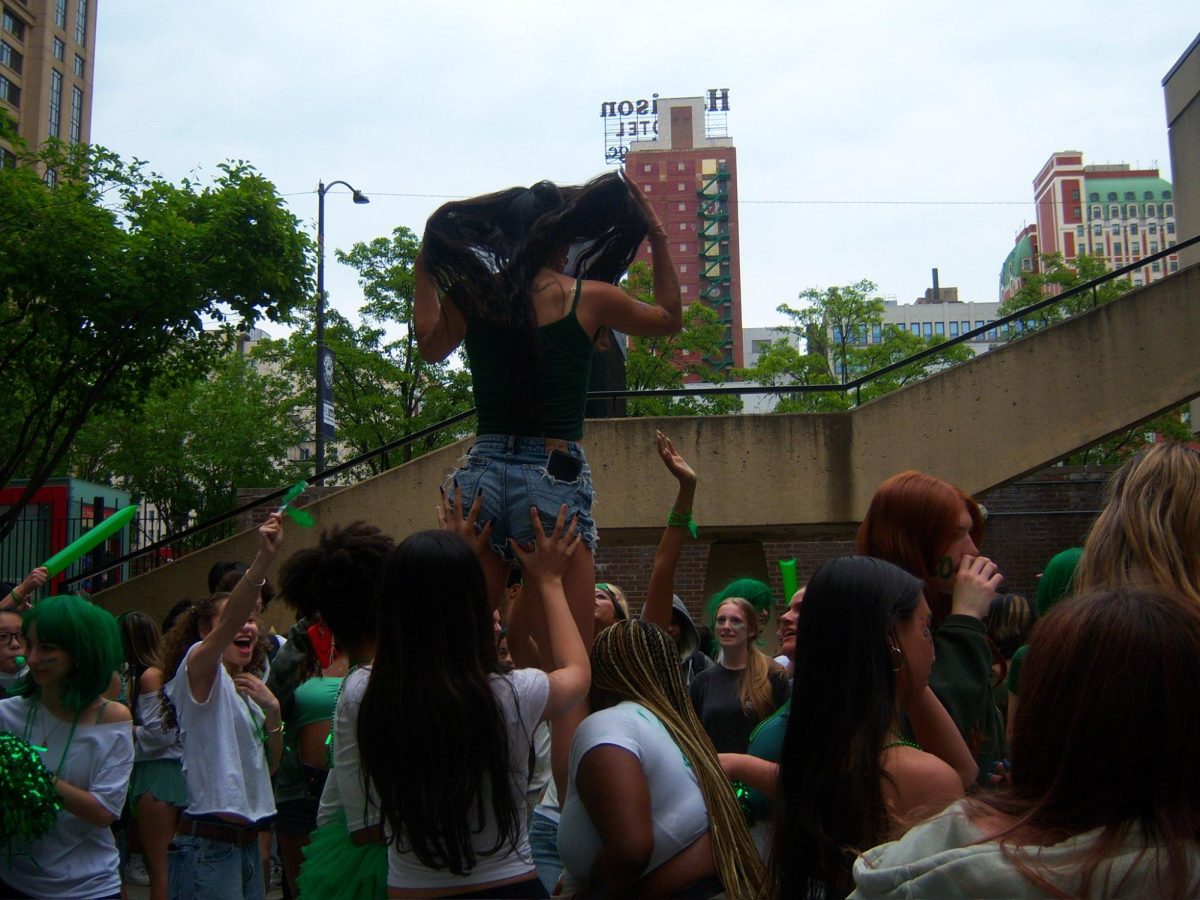At Jones, management is growing more aware and concerned about the issue of drug usage within school walls, specifically in the bathrooms. Substances like nicotine and marijuana are the most common among teens participating in this ongoing issue.
“I’ve vaped in the school bathrooms more times than I can count,” said a junior at Jones, who asked to remain anonymous.
A common sentiment among students is that these substances help take the edge off of an otherwise strictly academic and rigorous life.
“It’s not even about partying. It’s just how I manage the stress of school, and I know I’m not the only one,” said the anonymous junior.
Many students who abstain from such activities remark seeing their friends high during class or vaping in stalls between periods.
“I’ve seen friends consistently smoke in the bathrooms or come to class intoxicated, and it’s scary,” said Everett Sporrong ‘25. “Sometimes I worry they’re going down the wrong path.”
Upon return from winter break, students were greeted with heightened security and more cameras in “blind spots” in the halls.
“Personally, I believe the school needs to address the cause, not just punish the behavior,” said Sporrong.
Even those who partake in the bathroom activities feel punishments from the school only deepen the issue instead of solving it.
“People are using drugs to cope, not because they want to get in trouble,” said the anonymous junior. “The fear of getting caught stresses me out, but I feel like I’m in too deep. I doubt getting caught would even make me stop.”
Though mental health resources exist at Jones, students don’t take full advantage of them because they feel the systems aren’t specifically tailored to address their issues.
“Sometimes you can’t even get an appointment,” said Sporrong. “And when you do, it feels rushed – like they’re just trying to get you out the door.”
Alternatively, specific programs that look out for student wellness could be more beneficial in slowing student drug usage.
“Instead of just watching us more, what if we had workshops or spaces where we could actually talk about what’s going on?” said Sporrong. “Especially one where students wouldn’t be fearful of judgment or punishment.”
Students who intentionally avoid using substances in school feel that if security continues to crack down on these activities, it could lead to a whole new world of problems.
“I feel like if security increases hall patrols and bathroom checks, it could potentially be dangerous to our right to privacy,” said Sporrong. “It’s not problematic now, but I think if we don’t offer other support methods, our school environment could feel way more controlling.”
With substance use becoming more visible, some security guards have even begun to start more progressive approaches, similar to those that students support.
“We don’t want to invade students’ privacy,” said Frank Dickerson, an esteemed security guard stationed outside of the lunchroom. “But we do want to remind them that they need to use the bathrooms for their proper use and not anything else.”
Even a small reminder like the ones Dickerson offers can make a difference to a student struggling with stress and looking for an easy way to cope in the bathrooms.
“A couple times I’ve walked into the bathrooms with friends and heard Frank remind us to stay responsible,” said Sporrong, “and I think that’s the first step in the right direction.”
Even though reminders are useful, they can only have a certain amount of effect before more change is necessary.
“I admire the new approach security is starting to take, but I’d love to see more change from counselors and supporters too,” said Sporrong.
Jones faculty and staff must now decide whether to continue relying on discipline or to embrace new strategies rooted in empathy and support.







Parsa • Apr 22, 2025 at 9:56 pm
amazing work brandond